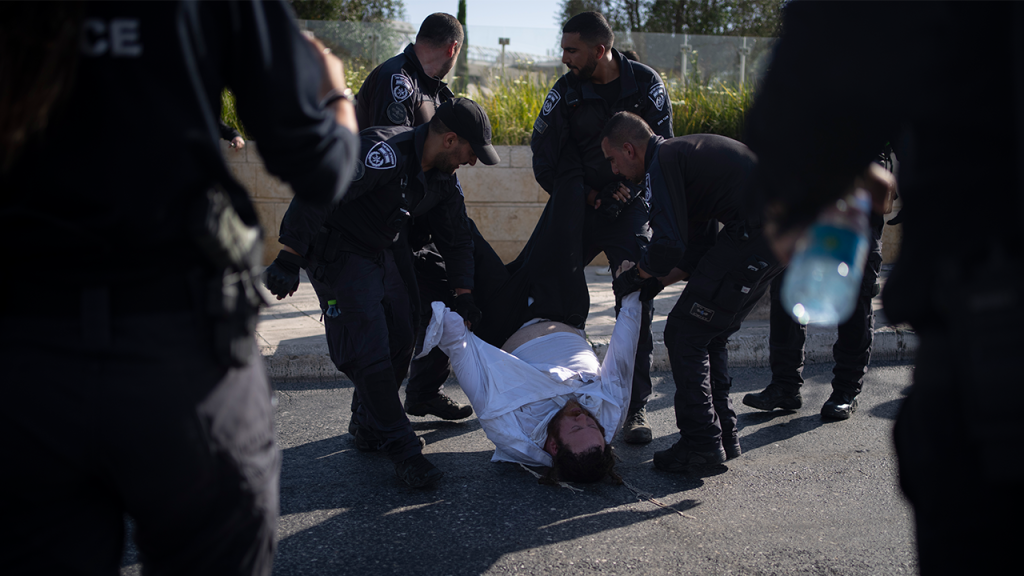Israel’s Supreme Court unanimously ruled that ultra-Orthodox men must be drafted for military service, stating that without a law distinguishing between Jewish seminary students and other draftees, compulsory military service applies to all citizens. Ultra-Orthodox men have long been exempt from the draft, causing anger among the secular public and leading to division during Israel’s conflict with Hamas. The exemptions have been supported by politically powerful ultra-Orthodox parties, which are key partners in the government, but the court ruled that the state’s enforcement of these exemptions violates the rule of law.
The court’s decision has sparked controversy and may lead to the collapse of the government, as ultra-Orthodox parties have been staunch supporters of the exemption system. Ultra-Orthodox men attend religious seminaries that focus on religious studies, leading critics to argue that they are ill-prepared to serve in the military or enter the workforce. The ruling puts pressure on ultra-Orthodox lawmakers to either comply with the decision or risk backlash from religious leaders and constituents. Despite years of legal challenges and court rulings against the exemption system, Israeli leaders have stalled on making changes due to pressure from the ultra-Orthodox parties.
Prime Minister Benjamin Netanyahu, in an effort to preserve his coalition, has tried to follow the court’s rulings while also making attempts to address the issue of ultra-Orthodox enlistment. Critics argue that previous government bills do not adequately address the shortage of forces in light of ongoing conflicts in Gaza and potential threats from Hezbollah in Lebanon. The ultra-Orthodox community, the fastest-growing segment of the population, views their religious studies as a form of protecting Israel and has resisted efforts to change the exemption system. Annually, around 13,000 ultra-Orthodox males reach conscription age, but less than 10% enlist.
The court’s decision represents a significant step towards ending the long-standing exemptions for ultra-Orthodox men and promoting equality before the law. The ruling challenges the notion that religious studies alone are a sufficient contribution to society, especially in a country with compulsory military service for most citizens. The ongoing conflict with Hamas and potential future threats highlight the need for all citizens to be prepared for military service. The ruling may lead to political upheaval and force ultra-Orthodox parties to reconsider their stance on the issue.
The court’s decision comes at a crucial time for Israel, as it grapples with internal divisions regarding the military draft and external conflicts with terrorist groups like Hamas. The ruling could have far-reaching implications for the government and the country’s security as it seeks to address the challenges posed by ongoing conflicts. Netanyahu’s efforts to balance the court’s decision with the demands of the coalition highlight the delicate political tightrope that he must walk. The future of the ultra-Orthodox exemption system and its impact on Israel’s military readiness remain uncertain as the country navigates these challenging times.













